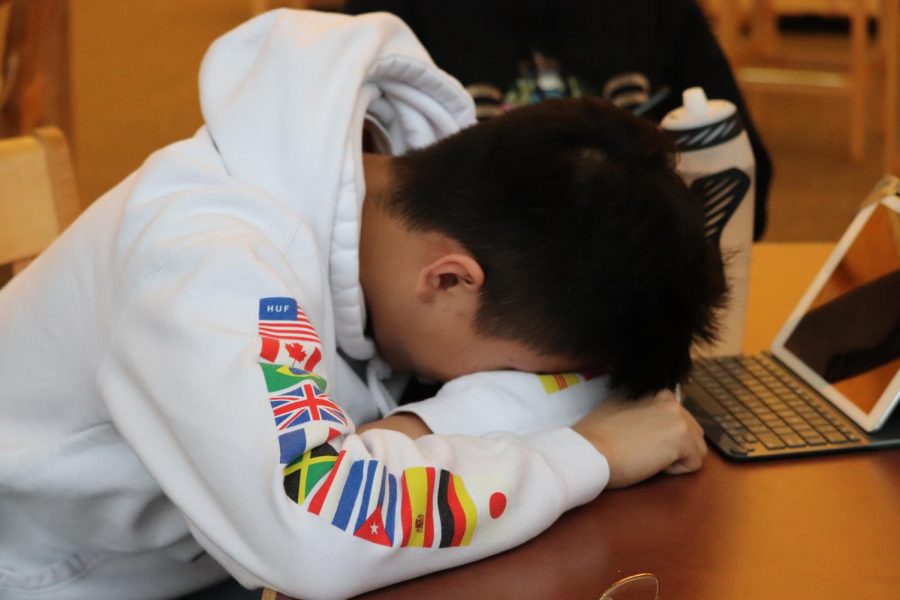No More Excuses: Why We Need Later Start Times Now
A new study has concluded that with later start times, students are more attentive and well rested throughout the day.
January 9, 2019
The topic of high schools starting later is nothing new and has been talked to death. We know that teenagers require eight to nine hours of sleep per night, we know teens naturally go to sleep later and wake up later than adults and young kids, and we know that grades and attendance greatly improve as a result of a later start time.
We also know that no matter how much this issue has been discussed, little has been done, on a national level, by those in a position to make these changes, with the average high school start time being 7:59 a.m.
But a new study released on Dec. 12 confirms all of these assertions with concrete evidence that cannot continue to be ignored, clearly showing that later start times benefit students in a number of ways.
Seattle Public Schools, a district serving 53,380 students, decided to finally follow the advice of our country’s medical professionals by switching their middle and high school start time from 7:50 a.m. to 8:45 a.m., despite the enormous hassle of rescheduling bus routes and extracurricular activities. The district was used as a test group in a study conducted by the University of Washington to definitively prove that later start times are extremely beneficial to teenagers.
The study compared the sleep patterns of students who attended a biology class starting at the district’s old start time of 7:50 a.m., with those attending a class starting at the new time of 8:45 a.m. Students’ sleep was tracked by wrist activity monitors which recorded when students fell asleep and when they woke up. These two groups were then compared with each other, and the results speak for themselves.
Students who attended the class at the later time got an average of 34 extra minutes of sleep, bringing the average amount of sleep per student from 6 hours and 50 minutes to 7 hours and 24 minutes. While this increase may seem minimal, the class with the later start time also had final grades that were 4.5 percent higher than those in the earlier class. Additionally, students were more alert during class and attendance improved.
In an opinion published in The Falconer in September, senior Sam Hull suggested a new schedule for La Salle that would push our start time back to 8:45 a.m. and have each day end at 3:15 p.m. While this plan effectively eliminates late starts, the consistency provided by this proposal would be better for teen health and for the schedules of parents, teachers, and students; all while still keeping the amount of time that students spend at school each week the same.
Since a more consistent schedule is also proven to be better for teen health, the only thing that seems to stand in the way of making this change is sports practices. But even this argument doesn’t hold up very well.
All sports activities would only be pushed back by 15 minutes. Because La Salle is a private school that is not part of a district, we obviously cannot change the sports schedules of schools that we are competing with. However, if we keep game schedules the same and only adjust practice times, the effect on athletes will be minimal, with only a maximum of 15 additional minutes of class missed on game days that require an early dismissal. If we successfully make these changes as a school, we can act as an example for other districts on how to implement a later start time and put student health above the inconvenience of rewriting schedules, just like Seattle.
With all of these details outlined, I urge the administrators of our school to put the health of students above the minor logistical issues of sports practices. Don’t we all want students to perform better academically? Don’t we all want kids to get more sleep and show up on time more often? Given the data available and the knowledge that we now possess, there is no excuse not to make this instrumental change that will surely better the lives of everyone involved.






Summer Tran • Jan 10, 2019 at 12:46 pm
Great article, Jason! I find it difficult to wake up on time on 8am start days without feeling exhausted, even with an adequate amount of sleep. I often have to skip breakfast because I am trying to sleep in as much as possible, and that has definitely taken a toll on my academic performance. I think La Salle absolutely needs to make a change—one that will benefit both students and teachers.
Owen Tunstill • Jan 10, 2019 at 9:25 am
I completely agree with this. My brother goes to grant, which starts at 8:30 and he’s niver as tired as I am.
Drew Bergeson • Jan 10, 2019 at 8:32 am
Yeahhh!!!!!! I barely pay attention in my first class on regular start days, I totally agree.
Nicole Khoury • Jan 9, 2019 at 8:21 pm
Yes!!! I totally agree that we should start school later!! I personally feel so much better during our late starts on Wednesday’s and Friday’s days because I get that extra hour of sleep so even just 30-45 min of more sleep every single school day?? Now that’s heaven.
Love the article Jason!
Michael Tang • Jan 9, 2019 at 8:17 pm
I completely agree with you Jason. If we were to compare La Salle students’ grades in the same classes, I wouldn’t be surprised if the classes on late start days had better grades and attendance than classes on regular 8 am start.